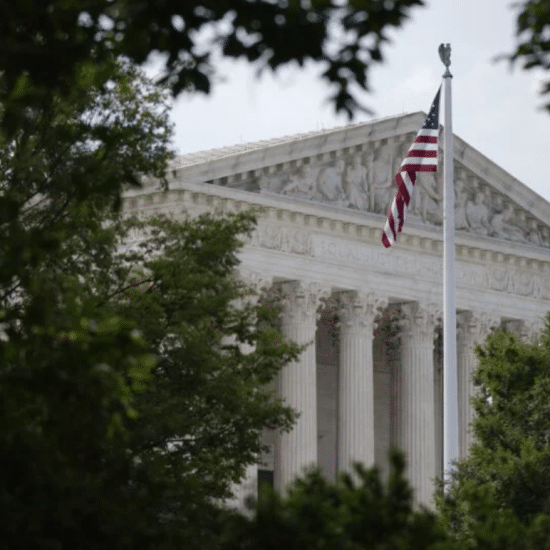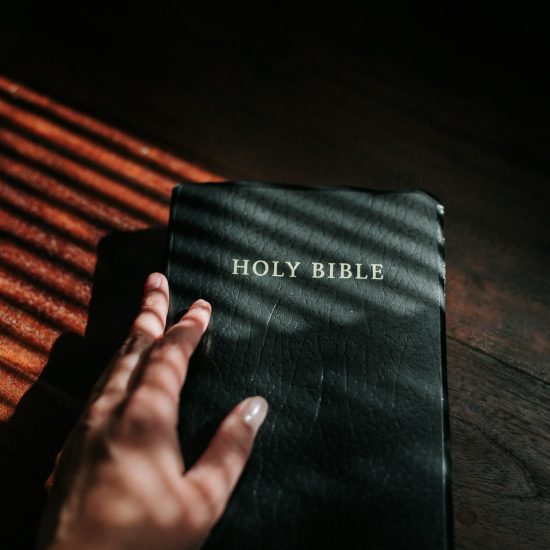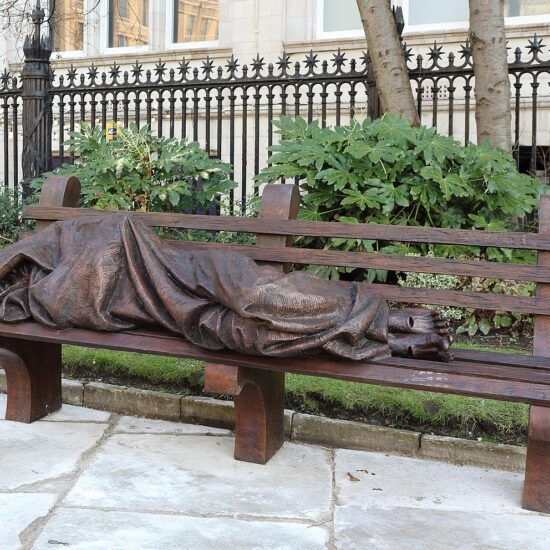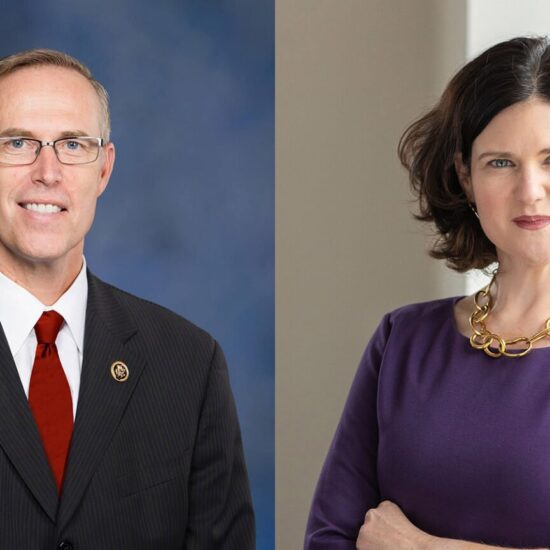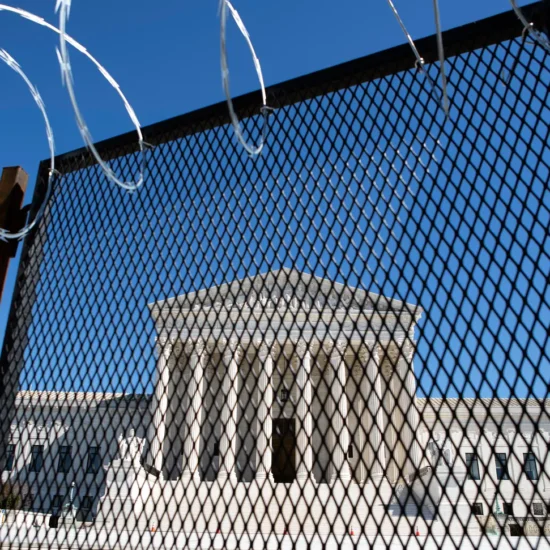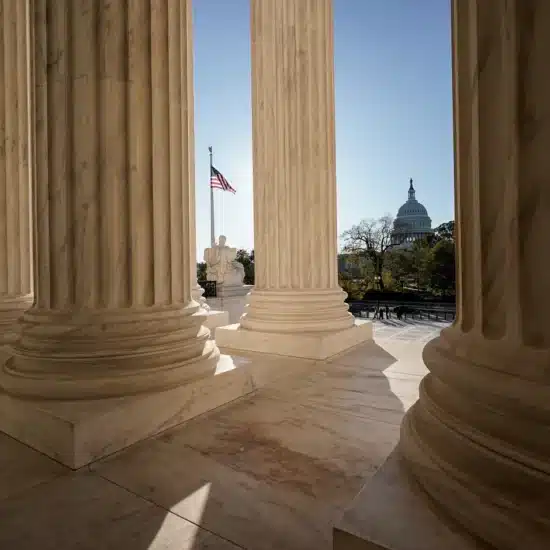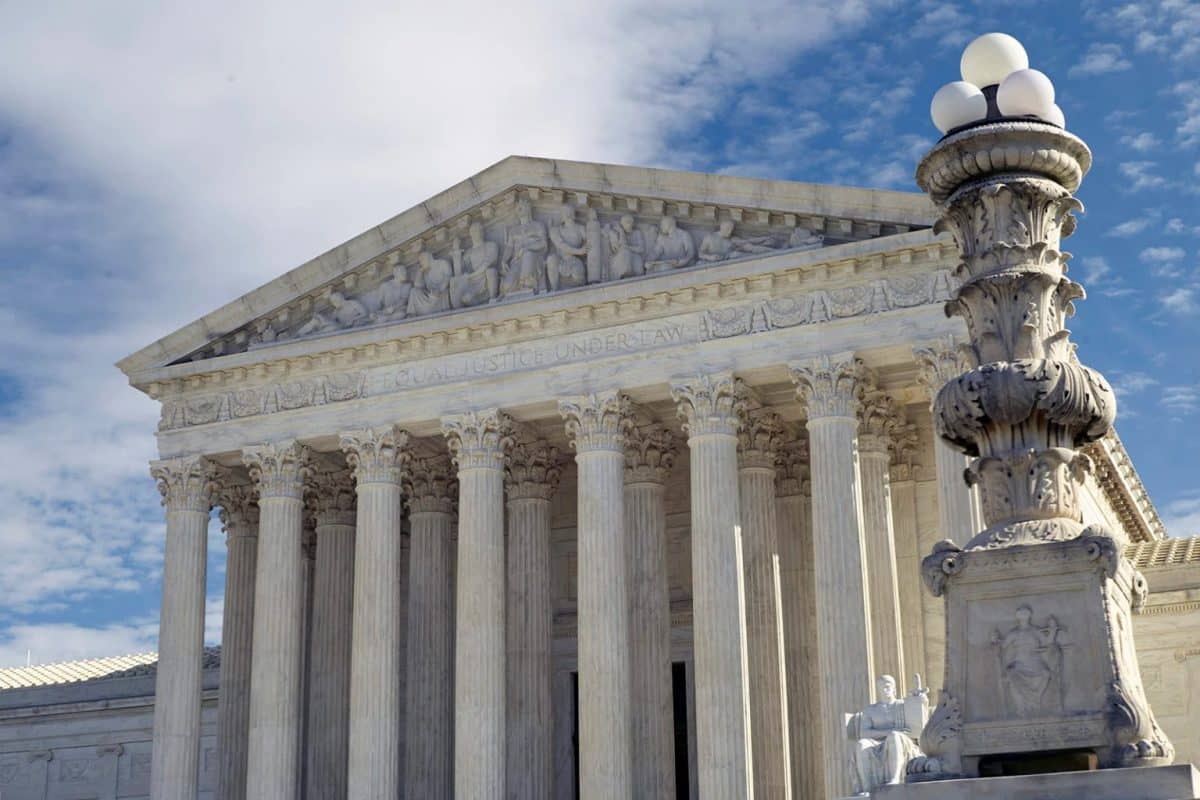
When the eight justices of the U.S. Supreme Court gather Tuesday (Oct. 6), they will hear oral arguments in Tanzin v. Tanvir, a case focused on a statutory question about the Religious Freedom Restoration Act. BJC, also known as the Baptist Joint Committee for Religious Liberty, is closely watching the case after filing an amicus brief with the Court.
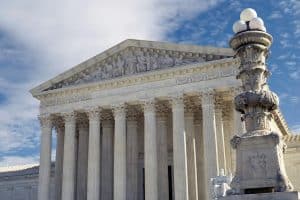
The Supreme Court in Washington, D.C., on Jan. 27, 2020. (Mark Tenally/Associated Press)
At issue in the case is what remedies are available as “appropriate relief against a government” under RFRA. BJC joined the Christian Legal Society and scholars on a friend-of-the-court brief, which says RFRA was always intended to allow for monetary damages under the same principles that are followed elsewhere in federal law protecting important civil rights.
As the justices were preparing to hear the case, BJC General Counsel Holly Hollman explained in a statement why the case matters.
“The Religious Freedom Restoration Act, like other civil rights laws, is intended to hold government accountable for the protection of fundamental rights,” Hollman said. “In most cases where a violation is proven, the remedy will be for the government to reverse course. In some cases, however, monetary damages against individual government actors are appropriate and should be available to address the harm of a violation.
“We joined a brief with the Christian Legal Society and experts in religious liberty and remedies law that focuses solely on the statutory question in this case,” she added. “The Supreme Court should affirm that RFRA was always intended to allow for damages under the same principles that are followed elsewhere in federal law protecting important civil rights.”
The brief BJC joined was written by church-state scholar Douglas Laycock, who holds endowed chairs at the University of Virginia and the University of Texas. This case was originally scheduled for the spring of 2020, but it was rescheduled due to the coronavirus pandemic. A decision in the case is expected by June 2021.

